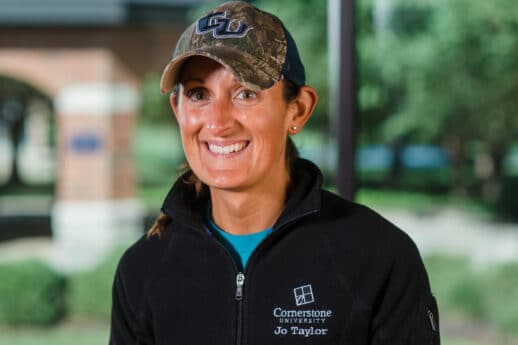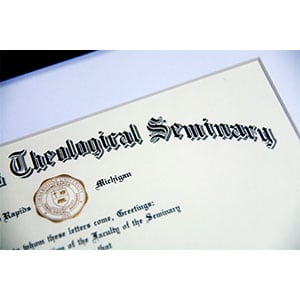As you scroll through job listings, you find the career you’ve been dreaming of. The job description aligns directly with your skills and how you want to grow in your professional life. The required skills match up with how you’ve been gifted and what your passions are. You can check the education requirement off as you’ve earned or are in the process of earning your degree.
You know this job can be yours. And you’re determined to make it so.
But before you dive head-first into an interview to personally tell the hiring team how amazing you are, your resume needs to get the conversation started.
While there are a variety of factors that come into play when selecting the right candidate for a position, a resume is often the very first step in getting recognized and respected. Employers know that a resume is just a short summary of who you are, but they also use it as a strong reference point to determine if you’re the right fit.
All that to say, your resume is vitally important in reaching that career of your dreams.
So before you fill out that application, check out these helpful tips and strategies to creating the perfect resume to get you that dream job interview.
1. Your Resume Is an Advertisement
In any job application process, a resume is almost always a requirement for submission. This one-page document is an advertisement of who you are. It encompasses your abilities, skills, accomplishments, background and future capabilities. Just like a radio commercial will highlight why a consumer should buy a product or service, your resume should highlight why the employer should bring you in for an interview.
It’s a summary, but it also provides the prospective employer an opportunity to get a glimpse of who you are and whether they’d like to meet you in person.
The resume is designed to spur on a job interview, not the job.
2. Catch Their Eye
Oftentimes, your resume is your one shot at getting the employer’s attention. In fact, according to an article from Glassdoor, the average recruiter or hiring manager only spends six seconds reviewing a resume. Six seconds.
Especially in large companies without an automated review process, managers have a lot of resumes to sift through. If yours doesn’t stand out, it may very well just be ignored.
So how do you make your resume stand out among the rest? While different roles will highlight different aspects of a resume, there are some things you can do to keep your resume in the “yes” pile.
Tailor Your Resume to the Job Description
Don’t use the same summary section—or resume, for that matter—for every position you apply to. Cater your content to the job description you’re applying for. Use keywords in your resume that you find in the job description.
Make Sure the Format of Your Resume Is Clean and Easy to Read
Don’t jump between thoughts too quickly and make sure it makes logical sense. Again, the manager doesn’t want to spend a lot of time trying to read what you’ve written in the first place.
Show You’re Right for the Role
Emphasize how the role you’re applying for is directly related to your experience and your career goals. Employers tend to look for candidates with relevant industry experience and abilities. For example, if you’re applying for a graphic design position, you may want to use your resume as an opportunity to show off some design skills.
3. Be Clear in Your Communication
The writing tips you’ve learned in any previous education may come in handy when crafting your resume. Typical rules of business writing such as clarity and conciseness also apply in creating the sections of your resume.
Keep Your Message Targeted
In your objective statement at the top, be clear, targeted and directed toward the specific job to which you’re applying. Keep your vocabulary simplistic and avoid excess jargon where it’s not appropriate.
Since hiring managers only spend a little bit of time on your summary, you’ll want to be sure the words and phrases you use are easy to read and concise.
Remember Your Writing Rules
Run-on sentences, grammatical errors, misspellings and typos are huge no-nos in submitting a resume. Show the employer that you excel in writing and pay attention to such details as you write. Limit your use of personal pronouns (such as “I” or “me”), particularly in the sections after your objective or profile statement.
4. Use Your Words Intentionally
In writing your resume, keep in mind that it’s not only how you present your summary that matters but also the exact words you use in your profile, education, experience and skills sections.
For companies that use automated resume screenings, there are even more things to keep in mind in your wording and information you include. Check out this blog article on how to beat the resume screening process. Your educational experience—like having a bachelor’s degree—and the keywords you use may just be the difference between the “in” and “out” piles.
REMEMBER THE JOB DESCRIPTION
As you write your resume, be sure to keep the exact job description from the employer out with you as well. Reference the key words used in the description and try to weave those words in with your profile, experience and abilities.
That’s not to mean put word-for-word what’s in the description. However, noting important descriptions or requirements and integrating them into your resume will help draw a clear connection between your abilities and experience and who they desire to fill this position.
The experiences, abilities and relevant qualifications you choose to include in your resume should somehow reflect your ability to meet the needs of the organization to which you are applying.
USE ACTION WORDS
To make your resume stand out, use active verbs in listing your experiences and background. A phrase like “delegated work to accomplish our annual growth” sounds better to an employer than “had team improve sales.”
INCLUDE THE RIGHT INFORMATION
If you have a long list of places where you’ve volunteered or organizations where you’ve worked, choose the experiences that have a greater connection to the job at hand. For example, if you’re applying for a sales position, you may want to choose to include your volunteer experience with helping people with their taxes rather than mentioning that one week in high school when you served snacks at an after-school program.
5. REVIEW YOUR RESUME. THEN REVIEW IT AGAIN
Before sending your resume off, surrendering it into the hands of the hiring manager, double-check that you’ve reviewed your written summary of yourself. Perfecting your resume is rarely a quick process. It requires revisions to ensure you have the right wording, the most effective information and the most relevant experiences.
Be sure to add to your resume as you grow in your career and experiences.
PARTS OF A RESUME
If you’re getting ready to write your resume, check out this brief template that provides a glimpse of what is most often included in your resume.
A. HEADING AND IDENTIFICATION
- Name: Put it in a larger font (18-24 pt).
- Address: Location they can reach you.
- Phone Number: Indicate whether it’s your cell, home or office phone.
- Email Address: Professional and permanent.
- LinkedIn Profile: Customize your URL and keep your page up to date.
B. PROFILE OR OBJECTIVE STATEMENT
Short paragraph or bullets that highlight specific areas of expertise, in reference to the keywords in the job description. You should rewrite or tweak this section for each job application.
C. EDUCATION
- Name/location of each school where you earned a degree.
- Mention what degree you earned.
- Include your G.P.A. if you earned above 3.3.
- Optional to include academic honors, study abroad experiences or other relevant course work.
D. EXPERIENCE
This section should be the main body of your resume and is formatted in either chronological or functional order. Chronological is common for recent college graduates and is helpful in highlighting upward movement. Functional is common for those who don’t have extensive work experience, are changing careers or are looking for a job not directly related to their education. It’s helpful for encompassing a variety of related experiences related to the job description.
For each experience or employment, include the following brief overview:
- Title of position/role.
- Name of the organization you were involved with.
- Location—city, state.
- Date of employment or experience—month/year.
- Description of responsibilities, emphasizing skills and achievements.
E. REFERENCES
If your employer asks you to include references as part of your resume submission, include these at the end.
CREATE YOUR PERFECT RESUME
With these tips and strategies, you’re on your way to creating a resume that can stand out among other candidates and get you one step closer to getting that job of your dreams.
At PGS, we’re committed to equipping our students for success both in the classroom and in their work. That’s why we implement helpful resources for students as they thrive in their careers and in the classroom. Check out some helpful academic resources you have access to as a student.











